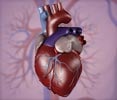Highlights
- Economic globalization may create stressful employment factors in high-income countries contributing to the worldwide epidemic of cardiovascular disease.
- Hypertension and obesity which may lead to coronary artery disease and stroke are not the “natural” results of aging, or of an aging population, but have environmental and social causes.
- Stress, job strain, effort-reward imbalance and the inability to cope at work may lead to depression which is a major cause of heart disease.
- Stress can also induce unhealthy eating habits, smoking, alcohol intake which increase the chances of hypertension, heart disease.
Stress is a term used to describe a state of mind where a task or relationship or financial constraint is taxing or exceeding the ability of a person to handle and endangering his or her well-being. While some feel that stress, to a certain extent brings out the best in them, for many it does do more harm than good. When stress is excessive, it can cause everything from high blood pressure, to asthma to ulcers to irritable bowel syndrome.
A recent study done at the University of California, Irvine and SUNY Downstate Medical Center points out that economic globalization may create stressful employment factors in high-income countries contributing to the worldwide epidemic of cardiovascular disease (CVD).
The study strongly states that “CVD risk factors such as hypertension and obesity which may lead to coronary artery disease and stroke are not the “natural” results of aging, or of an aging population, but have environmental and social causes.”
Though hypertension is still considered a disease of “unknown etiology” after more than 100 years of research, the American Kidney Foundation acknowledges it to be the result of “lifestyle changes related to industrialization and urbanization. So urbanization which brings change in the diet, physical activity and work environment induces hypertension which is the number 1 cause of heart disease.
How Does a Stressful Work Environment Cause Heart Disease?
The transition from agricultural to industrial forms of production, urbanization, and subsequent changes in the nature of work, living conditions, diet, and physical activity stands out as the major reason for heart disease.
Research in psychosocial epidemiology documents that psychosocial stressors such as job strain and effort reward imbalance (ERI) are important pathways in the development of CVD, involving the chronic activation of the stress response.
"We conclude from more than 30 years of epidemiological research that CVD is a disease of modern industrial society and not the natural result of aging,” said Schnall, who is with UCI’s Center for Occupational and Environmental Health and a clinical professor of medicine and public health. “It is related to forms of production that emerged with industrialization and that have expanded with economic globalization: long work hours, repetitive work, high demands, lack of control, long hours, and job insecurity.”
Stress may also affect behaviors and factors like high blood pressure and cholesterol levels, smoking, physical inactivity and overeating that increase heart disease risk. In order to manage chronic stress some people may choose to drink too much alcohol or smoke cigarettes. These habits can increase blood pressure and may damage artery walls.
Managing stress especially at work place can reduce the risk of heart disease and overall health. Though there is no sufficient scientific evidence, a few studies have examined how well treatment or therapies work in reducing the effects of stress on cardiovascular disease. Studies using psychosocial therapies – involving both psychological and social aspects – are promising in the prevention of second heart attacks.
Researchers emphasize a framework for the primary prevention of CVD that focuses on “upstream” socioeconomic factors, including the need to transform the work environment to reduce unhealthy working conditions that directly and indirectly contribute to CVD and its risk factors.
References:
- Stress and Heart Health - (http://www.heart.org/HEARTORG/HealthyLiving/StressManagement/HowDoesStressAffectYou/Stress-and-Heart-Health_UCM_437370_Article.jsp#.V-DCRfl97IU)
- Definitions of Stress - (http://www.ncbi.nlm.nih.gov/pmc/articles/PMC2560943/pdf/occpaper00115-0007.pdf)
- Understanding and Managing Stress - (https://www.psychology.org.au/Assets/Files/StressTipSheet.pdf)














